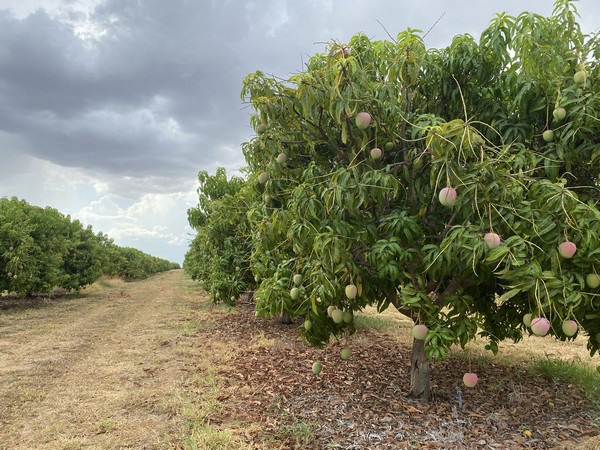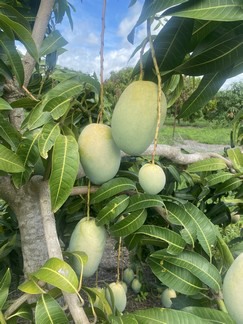Australian mango production has recovered significantly from the low year last season, with better than expected volumes and quality, matched by a growing demand for the fruit.
With the 2021-22 season now finished, Australian Mango Industry Association (AMIA) CEO Brett Kelly says the previous season was around 7.2 million trays, and this year, while final numbers are being finalised it will be between 8-8.2 million.
"That's around a million trays up on last year and the last mangoes came out of Gingin in late March," he said. "All of the feedback to us is that the quality has been excellent; the consumer response in terms of taste and flavour has been in the very good to excellent category. From what I can understand the crop works in cycles, and the previous year was considered 'down', so usually when they have a down, they then have an up. But when you look at all the obstacles that everybody has had to face, with the pandemic and weather events, they have pushed really hard to get these numbers. We think at this stage, next season is going to be even better than this one."

Photos courtesy of AMIA
Growers experienced "typical Australian weather", according to Mr Kelly, with some growers having to battle heat elements, other heavy rain and isolated flooding - in addition to supply chain issues. But the AMIA was pleased that growers were able to adapt and overcome a lot of the challenging circumstances, given the final production numbers.
However, Mr Kelly did admit that Kensington Pride numbers were a little down due to some issues with seasonality, but Calypso volumes were up significantly, which balanced out overall numbers.
"All in all, it has been a better year than we thought," Mr Kelly said. "I also think that the demand is continuing to grow from the consumer. I think the marketing has been excellent and the focus has been on the enjoyment and how uplifting it is to eat and have a mango. When you consider that in the past 12-24 months, with what all consumers have been going through with lockdowns and other restrictions, I think it has been a really good campaign. It all comes down to the consumer and rate of feedback, and all that I have looked at are showing an increasing demand for Australian mangoes. So, the campaign has been excellent and worked really well for us."
Export-wise, while Mr Kelly says a lot of work is being done on new market access, during these times with challenges in the global market, it has been a time to strengthen existing markets.
 "In saying that, I personally think, the domestic market still has huge potential," he said. "I have always been a believer in the domestic market being the foundation, then on top of that, the cream is the export market. Again, with all that has been happening around the world with the pandemic, and all the other issues, Australian product is going to be in more demand than ever before - so there are huge opportunities there."
"In saying that, I personally think, the domestic market still has huge potential," he said. "I have always been a believer in the domestic market being the foundation, then on top of that, the cream is the export market. Again, with all that has been happening around the world with the pandemic, and all the other issues, Australian product is going to be in more demand than ever before - so there are huge opportunities there."
Mango growers are now doing post-season pruning and preparation for the next season, which should begin in July in the Northern Territory. While from an industry perspective, there is still plenty of work to be done through the off-season.
"During this time, I am just about to go to Northern Australia to get around and talk with our growers to get some feedback," Mr Kelly said. "We also want feedback on some of our strategies. The Strategic Investment Plan (SIP) from Hort Innovation has been completed and we are going through the tendering process of these projects. That will hopefully be completed soon, so the AMIA can begin work on these new projects, which will run for the next five years. We also want to have more tools and resources available to growers regarding the front end of the business. That means, for example, templates for the cost of production, cost of business and business plans. This will help growers with more of an understanding of the negotiation and selling of the business to get a better price and ultimately profitability."
For more information
Brett Kelly
Australian Mango Industry Association
Phone: +61 7 3278 3755
com@mangoes.net.au
www.mangoes.net.au
